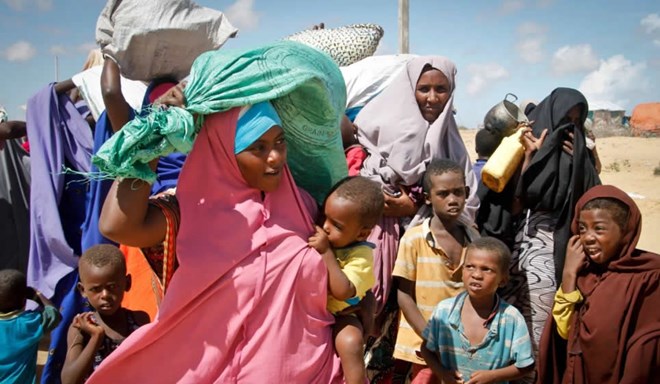The United Nations warns Somalia faces a perilous future as drought followed by torrential rains have destroyed this year’s planting season.
Somalia is one of the countries in the world most prone to the erratic and calamitous impacts of climate change. It has been hit by a double climate disaster for more than two weeks that is likely to worsen its already acute situation of food insecurity.
The drought, which was declared on April 25 was soon followed by torrential rains that caused flash floods and rivers to overflow. The U.N. organization for the coordination of humanitarian affairs reports the rains came too late for the planting season.
OCHA spokesman Jens Laerke said floods have killed at least 25 people in various parts of the country. The victims include nine children who died when their house flooded in the Benadir region, in the capital, Mogadishu.
“The Juba River has burst its banks, houses have been washed away and livestock have perished. There are also reports of flooding in the north of the country and there are continuous flash flood warnings across Somalia, especially for people living in low lying areas. In flooded areas, local communities are struggling to prevent further flooding by placing sandbags, poles and other materials to reinforce riverbanks,” he said.
The World Food Program reports 2.7 million Somalis are short of food, with more than half-a-million on the brink of famine. An estimated 300,000 children under age five are malnourished, including 48,000 who are severely malnourished and at high risk of disease and death.
OCHA spokesman Laerke warned the combined impact of drought and floods is likely to worsen this critical situation.
“Both climate shocks cause displacement, jeopardize access to safe water, increase waterborne diseases and impact people’s livelihoods. Despite increasing humanitarian needs, the funding forecast for 2021 is the worst in six years. This year’s Somalia Humanitarian Response Plan requires $1 billion to assist four million people. As of today, the plan is only 19 percent funded,” he said.
Laerke said OCHA and partners are using the limited funds at their disposal to step up operations in drought-affected areas and reach at least 353,000 people with aid. Urgent efforts, he adds also are under way to respond to the flash flooding.
The World Food Program reports it has distributed food to more than 20,000 people in Jowhar city, one of the areas hardest hit by flooding in central Somalia.





